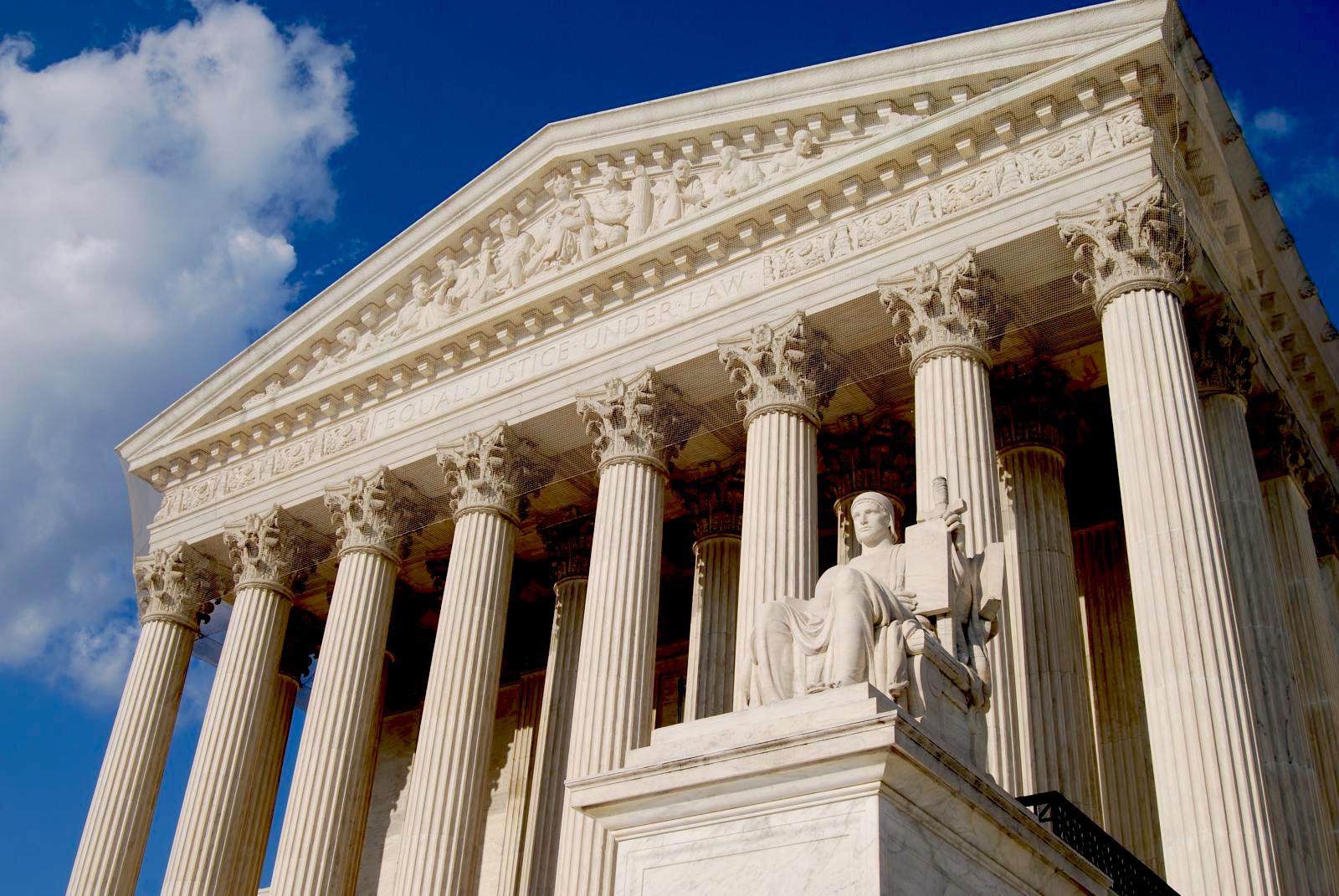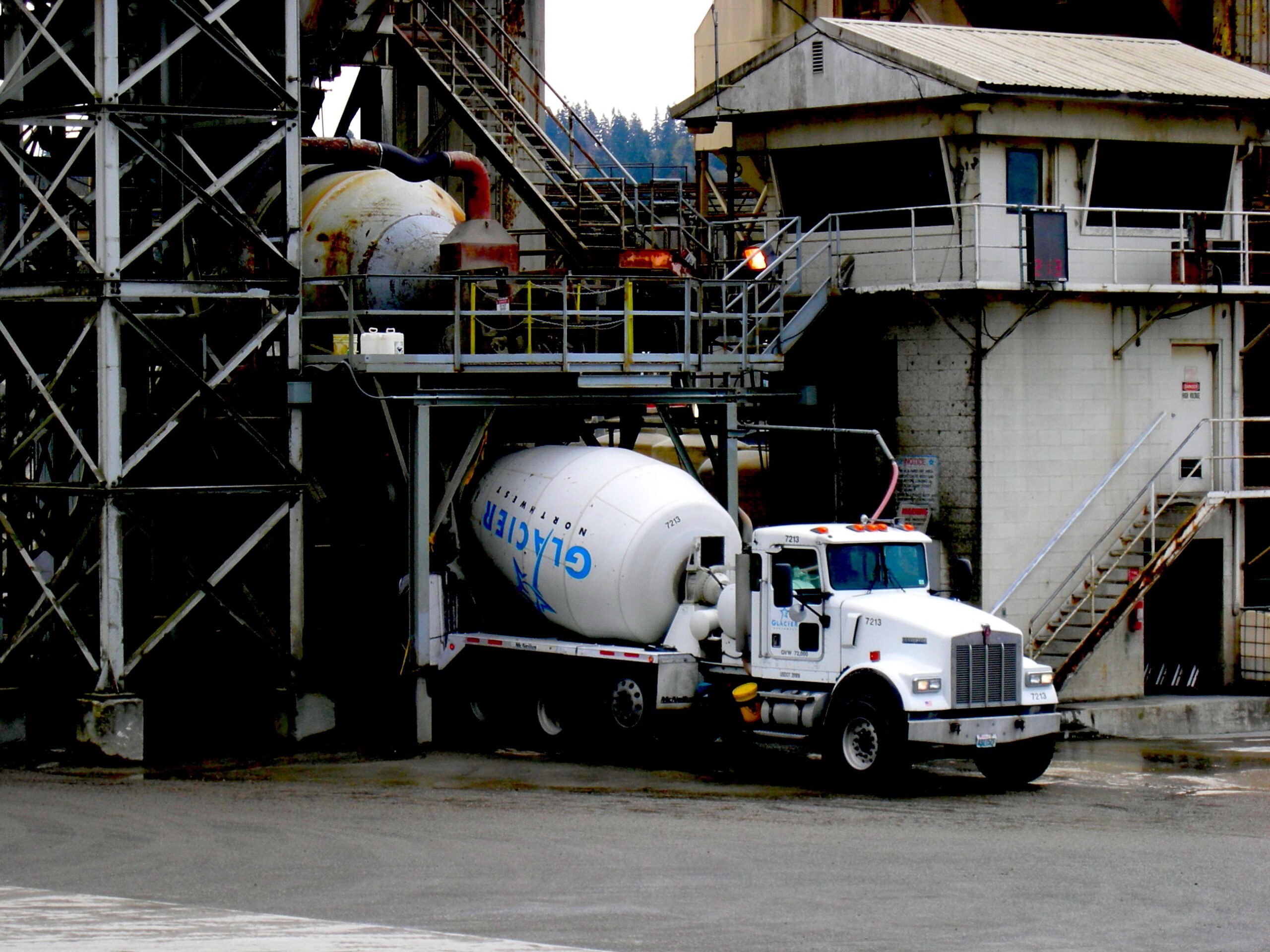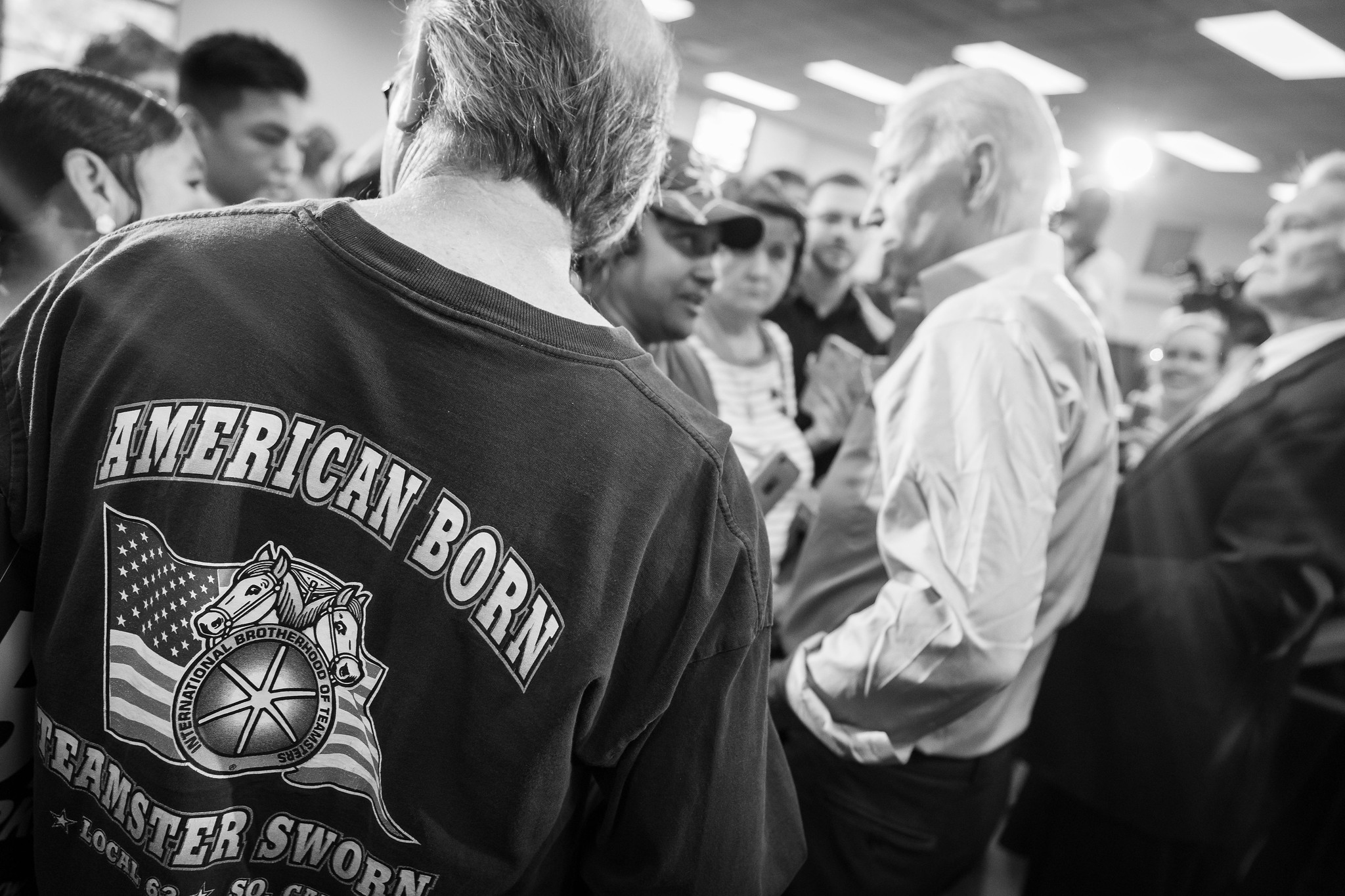Marjorie Cohn goes over a case involving a 2017 Teamsters strike against a concrete company in Seattle that is now before the High Court’s pro-corporate super majority.

U.S. Supreme Court Building. (Christina B Castro, CC BY-NC 2.0)
 The right to strike is on trial in the Supreme Court. At stake is a 64-year-old precedent that shields workers and unions from state lawsuits while they pursue unfair labor practice claims in the federal National Labor Relations Board (NLRB). If unions have to defend against costly lawsuits, it will likely discourage them from going on strike.
The right to strike is on trial in the Supreme Court. At stake is a 64-year-old precedent that shields workers and unions from state lawsuits while they pursue unfair labor practice claims in the federal National Labor Relations Board (NLRB). If unions have to defend against costly lawsuits, it will likely discourage them from going on strike.
On Jan. 10, the High Court heard oral arguments in Glacier Northwest, Inc. v. International Brotherhood of Teamsters Local Union No. 174. The case involves a 2017 strike called by a Teamsters local against Glacier Northwest, a ready-mix concrete company in Seattle.
Eighty-five truck drivers walked off the job. Sixteen of them whose trucks had been loaded with cement but hadn’t made their deliveries returned the trucks to the employer, leaving the trucks running to prevent the concrete from hardening. Glacier was unable to deliver all of the concrete and had to dispose of it. The trucks, however, were not damaged.
Glacier sued the union in state court for tortious destruction of its property and sought damages for the undelivered cement. In December 2021, Glacier’s lawsuit was dismissed by the Washington Supreme Court which ruled that the National Labor Relations Act (NLRA) preempts state court lawsuits.
The NLRB’s general counsel issued a complaint against Glacier in January 2022, alleging that the employer had committed unfair labor practices by retaliating against union members for their strike. That action is still pending.
Glacier Northwest “is about corporations using the legal system to try to deny workers their inherent power,” Teamsters General President Sean M. O’Brien said in a statement. With a right-wing pro-corporate supermajority on the Supreme Court, we can expect a decision that dilutes the power of workers to exercise their legal right to strike. In the 2018 case of Janus v. AFSCME and the 2021 case of Cedar Point Nursery v. Hassid, conservative majorities of the court handed down two anti-union rulings.
Garmon Preemption
Under the precedent established in the 1959 case of San Diego Building Trades Council v. Garmon, an employer must obtain a ruling from the NLRB saying that the workers’ strike was not federally protected before it can file a lawsuit against the union in state court. If the NLRB decides the union’s action is “arguably” protected by the NLRA, the state court doesn’t have jurisdiction to hear the case. This is known as “Garmon preemption.”
Support CN’s
Winter Fund Drive!
The Teamsters maintain that Glacier’s lawsuit can only be heard in state court if the NLRB determines the union’s actions were not protected activity under the NLRA. It would not be protected union activity if the strikers failed to take reasonable precautions to avoid aggravated, imminent and foreseeable harm to Glacier’s property. The Teamsters argue that they did take reasonable precautions to protect the concrete.
The ‘Local Interest’ Exception

Glacier Northwest cement works, Kenmore, Washington, 2007. (Joe Mabel, CC BY-SA 3.0, Wikimedia Commons)
Glacier is arguing that its lawsuit should not have been dismissed and should’ve been allowed to proceed in state court because the union’s conduct met the “local interest” exception to the preemption rule. According to Garmon, this narrow exception allows state tort claims “where the regulated conduct touched interests so deeply rooted in local feeling and responsibility that, in the absence of compelling congressional direction, we could not infer that Congress had deprived the States of the power to act.”
Attorney Noel Francisco argued on behalf of Glacier that the Teamsters’ strike was more than “a mere stoppage of work” because “they put us in a position of putting that concrete in a vulnerable position precisely so they could abandon it.” Glacier accused the union of timing their strike so the mixed concrete would harden and become unusable, and said that intentional destruction of employer property meets the “local interest” exception.
No Intentional Destruction of Property
Teamsters lawyer Darin Dalmat told the court that the union “instructed the drivers to keep the drums running when they returned the trucks” so the cement wouldn’t harden. “Every day [Glacier] deals with leftover concrete,” Dalmat said. The union’s action did not constitute “intentional destruction” of Glacier’s property, he argued, noting that the Supreme Court has never determined that workers forfeited their legal rights “merely because perishables spoil.”

Washington State Supreme Court building in Olympia. (Harvey Barrison, Flickr, CC BY-NC-SA 2.0)
In dismissing Glacier’s state lawsuit, the Washington Supreme Court said the “local interest” exception to preemption did not apply because the destruction of the concrete did not amount to intimidation or violence.
The Biden administration filed an amicus brief “in support of neither party” and participated in oral argument before the court. Assistant Solicitor General Vivek Suri argued that the Washington Supreme Court shouldn’t have dismissed Glacier’s state court case, but he said that once the NLRB makes factual findings, the state court should adopt them.

Joe Biden, right, campaigning for president at a Teamsters event in Clinton, Iowa, June 12, 2019. (Adam Schultz / Biden for President, Flickr, CC BY-NC-SA 2.0)
Ketanji Brown Jackson proposed focusing on the intent of the union by asking, “Is the union engaging in conduct for the purpose of destroying the property of the factory, or is the union just striking, and if some of the property gets damaged because they’re walking away, that’s incidental, that’s totally protected?”
John Roberts noted that “there certainly is a distinction between economic harm to the employer, which is at the heart of many strikes anyway, and intentional destruction of property. The difference between the milk spoiling and killing the cow.”
Liberals Appear Sympathetic to Teamsters
The three liberals on the court — Jackson, Sonia Sotomayor and Elena Kagan — appeared sympathetic to the union’s argument that the NLRB should hear the case first. Kagan said the board had handled thousands of these cases and “can fit a case like this into a broader map of strike conduct and what’s protected and what’s not.” Jackson echoed Kagan’s sentiment, noting that “our precedent recognizes congressional intent to allow the Board to develop a uniform body of law.”
Amy Coney Barrett was concerned about why the NLRB general counsel waited four years to file a complaint against Glacier. Suri replied that the delay was an anomaly because Glacier filed a separate allegation that the state court had to resolve.
Clarence Thomas and Neil Gorsuch asked a few questions of the lawyers, but Samuel Alito and Brett Kavanaugh asked none.
Given the political makeup of the court, it will likely rule that the drivers’ conduct was not protected by the NLRA and allow Glacier’s state court lawsuit to proceed.
Seventy-one percent of the U.S. public supports labor unions, the highest number since 1965. But the radical right-wing Supreme Court is about to deal a severe blow to the right to strike — the most potent weapon workers have to obtain justice.
“Workers in America have the fundamental right to strike, and American workers have died on picket lines to protect it. The ability to withhold your labor is the one powerful tool throughout the history of unionization that has ensured workers can improve their working conditions,” Teamsters President O’Brien stated.
The court will hand down its decision by the end of June 2023.
Marjorie Cohn is professor emerita at Thomas Jefferson School of Law, former president of the National Lawyers Guild, and a member of the national advisory boards of Assange Defense and Veterans For Peace, and the bureau of the International Association of Democratic Lawyers. Her books include Drones and Targeted Killing: Legal, Moral and Geopolitical Issues. She is co-host of “Law and Disorder” radio.
This article is from Truthout and reprinted with permission.
The views expressed are solely those of the author and may or may not reflect those of Consortium News.
Support CN’s
Winter Fund Drive!
Donate securely by credit card or check by clicking the red button:


The land of the free???
When you cannot withdraw your labour somebody owns you.
Very good article on what is to come to the dwindling labor movement by Marjorie Cohn by the pro-fascist (pro-corporate) super majority on the “biased” (my words, not Ms Cohn’s) SCOTUS .
When the “right to strike” is outlawed, or becomes illegal, say by a U.S Supreme Court decision, then the US is finished as a so-called “democracy” and it becomes another dictatorship governed by oligarchs and big corporate bosses, and the hell with the working-class.
Joe Biden put the screws to the railroad workers last month, when citing an antiquated Law of 1926, almost a century ago.
People keep voting for the so-called “lesser of two evils,” depending on their political party preference, which are the R’s and D’s, or what I call the Repulsives and the DemoRATS, both anti-union.
Labor History is not taught in schools and most Americans are not into learning about it either. They’re more interested about sports and entertainment venues.
Somebody needs to eviscerate the supreme court! If they can’t handle their power fairly and properly, they should be stripped of it completely.
No matter how detrimental their court rulings are, they cannot be impeached “fired” as thy have “tenure for life” similar to the “divine right of kings” so things will continue downward for the average workers, unless they all join together and participate in the Magic Seven
of “Take to the streets, withhold your labor.”
The French take trade-unionism seriously and are on the street , thousands of them, over Macron’s latest policies.
Don’t get mad, organize!
Just don’t be fooled by one of the parties of the rich that pretends to be on the side of the workers, a little bit, very weakly, and of course only for the handful of weeks before an election day. Organize! against both parties of the rich.
The Democrats voted against the right to strike last year, with the proud support of the Progressive ‘wing’ as they provided the the votes that Wall Street had to have in order for the anti-strike bill to pass. Of course, the Progressives then held a press conference after the vote and said they opposed the bill they had just worked hard to pass, and presented an always-doomed vote on very limited ‘sick-days’ as a band-aid.
But, now we get to watch the Dems act all shocked and surprised at the Supreme Court.
But, don’t be fooled, the Party of Wall Street has no problems with ending the right to strike.
Kudos on nailing the hypocrisy of the dems. They sold out on sick days for public transportation workers while they tell us to still fear the pandemic. Workers are collateral damage of capitalism and both parties are servants of Wall Street.